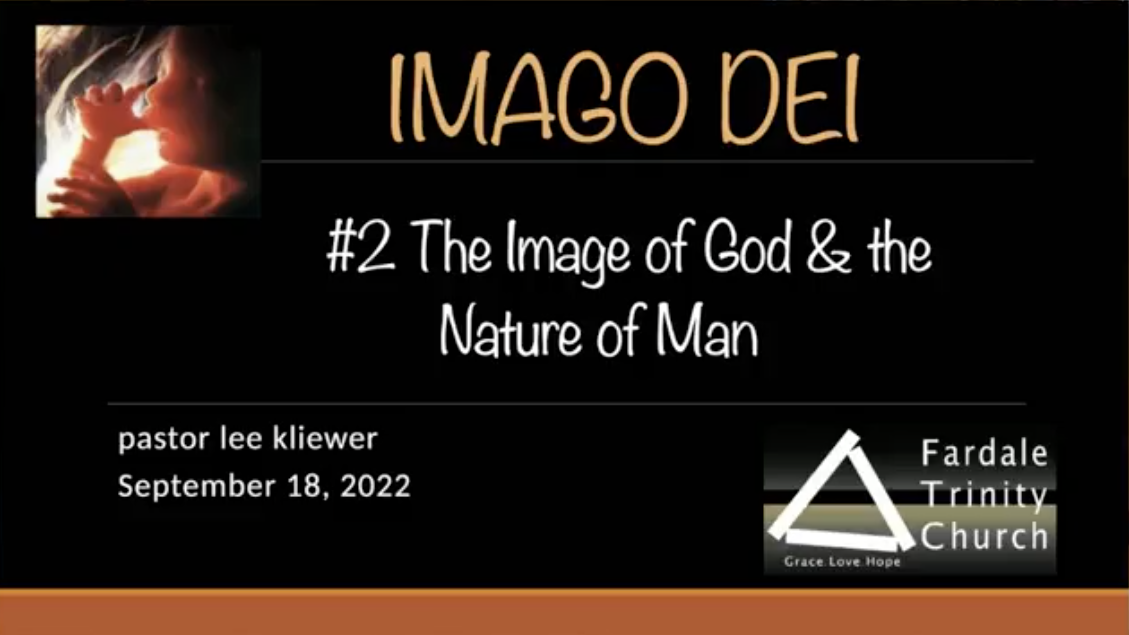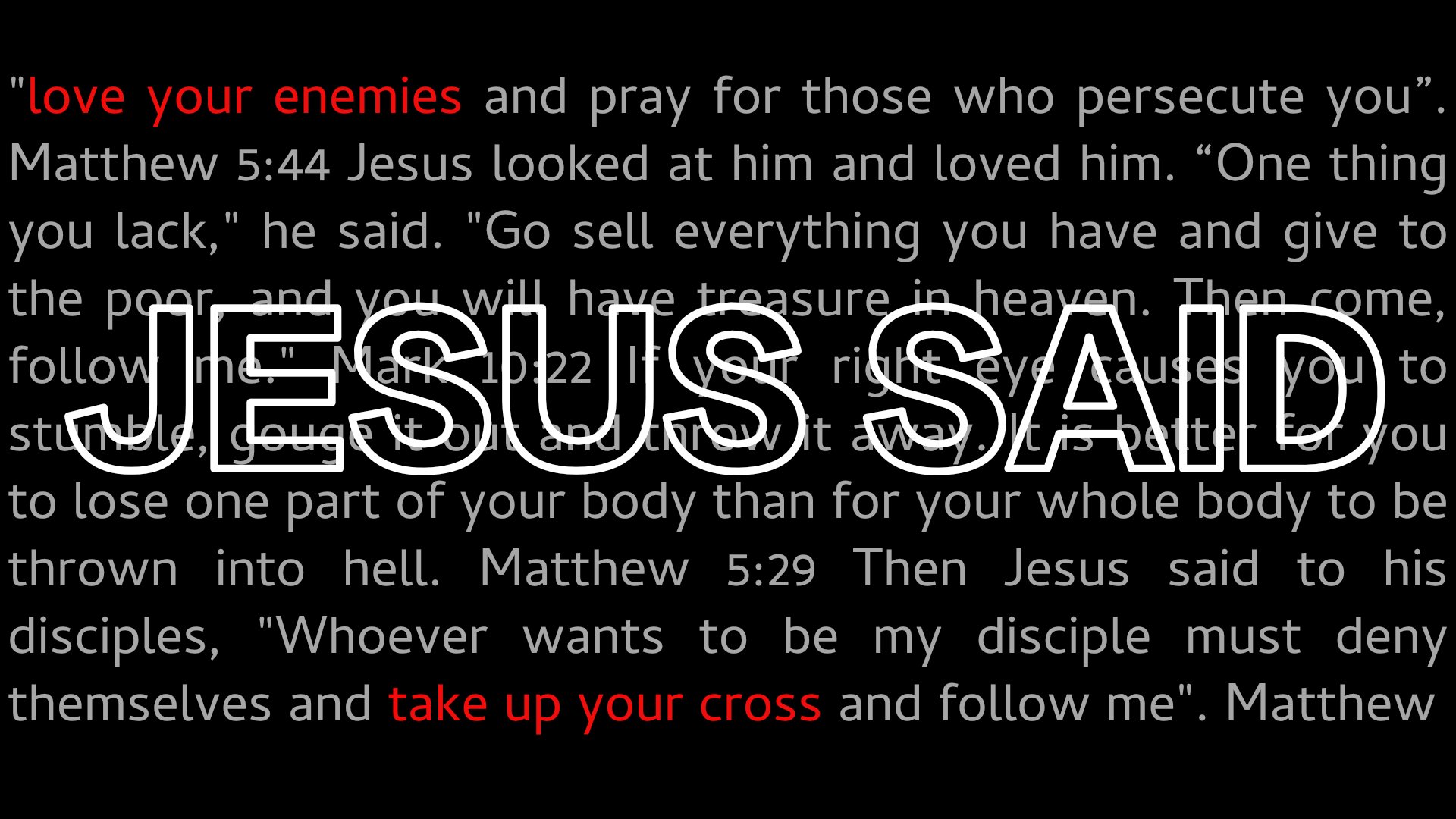This Week’s Sermons
Sermon Series
Current Series
What do we really need to do to prepare the next generation – children, teens, young adults – to follow God with their whole hearts as servant-leaders for His church? If we could concentrate on the most important life lessons that are needed in “passing the torch” of ministry & leadership, what would that look like? The term Mentor implies a “wise advisor, teacher, or coach”. In this series, we will look at 6 life lessons in the mentoring relationship that Moses had with Joshua, preparing him to be the next leader for his generation. This series reinforces our commitment and priority to intergenerational ministry at FTC, as “older men & women teach younger men & women” the life of godliness and God-dependence.
The Book of Genesis is a book of foundations. Through it, we begin to form a foundation for what we believe: About God and His character, about mankind and sin, about the origin of life, about the value and sanctity of life, about gender and identity, about marriage, about race, about the gospel and God’s plan for salvation, and so much more.
A collection of short series and individual sermons.
What does it really mean to live to the praise of the glory of God? This letter from the Apostle Paul to the 1st century church at Ephesus is rich in doctrinal teaching, yet full of practical principles for our daily living. When we look at the amazing plan of God’s grace to redeem us before the world began, we will be drawn to live out His grace through our relationships in the church, and recognize Jesus’ full authority to rule as the Lord of the Church and our individual lives.
One of the great stories of Jesus is when he first met His disciples, and He told them, I will make you fishers of men. His disciples knew how to “fish for fish” but they had no idea how Jesus would teach them to pursue people with the Gospel in the same way. Does Jesus’ mandate to His disciples still work for us today? Are we able to apply the principles of evangelism and discipleship to our culture as we share the Gospel with our neighbors? Can we trust the sovereign Lord of the Harvest and His methods to introduce people to Jesus today?
God has given us everything that we have; He asks us in return to use what He has given us for ministry to others and giving Him glory! This is called stewardship: managing the resources that He has given us for Godly goals. We will learn together the principles, challenges and blessings of managing our time, talents, and treasures (money), so that He can use these resources to build His church; it is impossible to out-give God!
Imago Dei: what does it really mean to be made in the image of God? This study will take us back to the book of Genesis to examine God’s original design of the human race, made originally in His likeness. We will see that we have been “fearfully and wonderfully made”; that God highly values life itself, and every person that has been made in His image. We will come to understand how sin has damaged the image of God in all of us, but that through salvation in Jesus, that image can be fully restored. We will look at many contemporary cultural philosophies and trends that attempt to destroy the truth of God’s image on mankind: ethnic and race divisions; diversity and equality issues; gender roles and human sexuality; all of which can be manipulated to disregard the high value that God has placed in every person.
Have you ever watched your children (or grandchildren) go through a sudden GROWTH SPURT? Seems like they have already grown out of those pants that you just bought for them 2 months ago! What if, in our spiritual walk of faith, we could experience the same thing – to really see a growth spurt in our Christian maturity that increases our desire and commitment to pursue Christ-likeness? Join us at Fardale for this 12-week series as we learn to apply principles for spiritual maturity.
“In today’s culture, many people outside of Christianity, especially younger generations, have little trust in the Christian faith; many think that Christians today no longer represent what Jesus had in mind . . . that most Christians are perceived for what we oppose, rather than who we are for . . . Something has been lost in translation.” David Kinneman
This 4-part series will focus on why it really matters that Christ-followers live out their faith, rather than just say it . . . that the key to sharing the gospel in our current culture is based in authenticity – the real measure of authentic faith is what we DO.
If Jesus walked into our church this Sunday, what would He see? What would He want from us? Jesus actually did, and still does, walk among His churches, just as He did in the late first century with the 7 churches in Asia Minor, in Revelation 2-3. What did He say to them, and what does He say to us today about our church? Since Jesus is the HEAD of His church, His body – it makes total sense for us to know what He really wants from us, and what His priorities are for building His church today
Through this series we will be taking a look at some of the red letters in the Gospels to see what Jesus had to say about some important topics. In John 12:49-50 Jesus said, “For I did not speak of my own accord, but the Father who sent Me commanded Me what to say and how to say it. I know that His command leads to eternal life.”
There is hope in the gospel, hope in Christ’s return, hope in our salvation, and even hope in the midst of persecution. And while this is true, as God’s people we are also called to holiness. Our hope for tomorrow needs to impact our holiness today.
In Acts 1:8 Jesus said, “You will receive power when the Holy Spirit comes on you; and you will be My witnesses in Jerusalem, and in all Judea and Samaria, and to the ends of the earth.” Throughout this 5 week series we will look at what made the early church effective in evangelizing the lost, what will make our efforts effective, and what methods and strategies will be helpful.
In the midst of so much uncertainty, as believers we will be reminded of what we can know for sure. In this book, John tells us that we can know we are forgiven, in right fellowship with God, the difference between worldly and godly, the truth, what love it, what love looks like, how love impacts our lives, that we are saved, and much more.
God put a great task on Nehemiah’s heart! God wanted him to return home to rebuild the wall, which had been in ruins for nearly 100 years. Although this is something God put on his heart, Nehemiah was careful and prayerful in how he went about this task. He didn’t do it alone. His strength came from the Lord - God gave Him success. And he encouraged all the people to work at this with all their heart. Even when the task seems impossible, God can use His people to do great things for His kingdom!
In the book of Philippians, Paul uses the word joy, or a form of it, over a dozen times. Paul was able to experience joy in life through His relationship with Christ. Regardless of his circumstances, or their outcome, Paul trusted in the Sovereign God. In any and all of life's situations, no matter how hard or confusing, we too can have joy in life through Jesus Christ.
In popular culture, “being devoted” means that you are committed or dedicated to something or someone. You might be a devoted husband. Or you might be devoted to recycling, or to eating clean, or to physical fitness or to some sport. Perhaps you are devoted to some TV show, meaning that you never miss an episode. Or you may be devoted to your career, to advancing at work. On one level, we all know what being devoted is. But what about spiritual devotion? Is it more than spiritual commitment? More than devotions? What does the concept of devotion mean in the Bible? Want a fuller, more comprehensive understanding of what it is to be devoted to the Lord? Want to understand devotion accurately so as to respond with devotion appropriately? Then we invite you to come along with us for the journey.
In our study of 1 & 2 Samuel, we will see how hard it is for people to follow God's path. We will also see how necessary it is for us to follow Jesus, our permanent, perfect King and Priest.
After Joshua had dismissed the Israelites, they went to take possession of the land, each to his own inheritance. The people served the LORD throughout the lifetime of Joshua and of the elders who outlived him and who had seen all the great things the LORD had done for Israel... After the whole generation had been gathered to their fathers, another generation grew up, who knew neither the LORD nor what He had done for Israel.
The road to reconciliation can be long and hard. It's often a process that takes time, prayer, and sometimes a counselor. Specifically, it involves open communication, trusting in the work of God to restore, a willingness to see your own faults, confess, repent, and forgive. When Christians do this, they turn conflict into an opportunity to strengthen relationships, preserve valuable resources, and make their lives a testimony to the love and power of Jesus Christ. Through this book we will see that the road to reconciliation involves a mediator, a changed heart and mind, and forgiveness.
Since we wish to ascertain whether or not we are a healthy church, what do we measure and how do we measure? What is Jesus’ standard of measure? I’m asking the question “What Does Jesus Think?” because I really want to know what Jesus thinks about our church, about our ministry. I want to bring us into alignment with His will at any point where we are out of alignment with His will. This series is about our church as a body, as a group, but it’s also about me and you as individuals…because the church is a collection of individuals.
What is satisfying, what brings contentment, what fulfills? Where does our search for satisfaction (contentment, fulfillment) take us? What is the meaning (purpose) of life? …of my life? Am I significant? Do I matter? Does it matter and will it matter that I have lived? Am I important here and now? And in the bigger picture? Atheists would say that passing on your DNA warrants your consumption of resources and validates the significance of your existence. That’s it? The writer of the Book of Ecclesiastes sought the answers to these and other questions, and this book is his conclusion having thoroughly investigated answers to these questions.
Joshua did stuff for God, and I want to do stuff for God too. He had a teachable heart, a willing spirit, and humility marked by availability, loyalty, teachability, obedience and faithfulness. Let’s learn from his example.
Worship is ascribing worth to God. Worship is you expressing your affection to God, focusing your attention on God, and using your abilities for God. You do this as a Christ-follower in your everyday life, and you do it as a community of Christ-followers or a family of Christ-followers with your local church. The family of faith gathering at which you do this is the Sunday Worship Service. It’s been the practice of Christ-followers since that first resurrection Sunday. It is the time when we come together and we give to God the best that we have to offer as a sacrifice of praise, adoration and thanksgiving. God-Pleasing worship has object (it is God directed and focused), has source (it is Holy Spirit born and motivated) and has content (it is in harmony with God’s revealed truth, so it is doctrinally sound /correct.)
This sermon series is a study of the attributes of God. The attributes of God are those qualities of God which constitute what He is; the very characteristics of His nature. His attributes are not His acts and roles. His attributes are permanent qualities. They are intrinsic, so they cannot be gained or lost. God’s attributes are permanent, inseparable qualities, essential and inherent dimensions of His very nature. The attributes of God are inseparable from the being and essence of God. His attributes comprise His nature. (Erickson, p. 265)
We at FTC claim that the Bible is the written word of God. It is true, without error, and it is authoritative. Everything we teach here has the Bible as its basis and authority. It is not merely a truth but its message is exclusively the truth. The Bible (all 66 books) is not merely a word from God, it is the word from God. All our theological beliefs are founded on the Bible. The purpose of this sermon series is to learn why we believe that the Bible is the word of God. Our study will cover eight crucial topics: revelation, inspiration, canonicity, inerrancy, reliability, translation, interpretation, and application.
Believers and non-believers alike have genuine, heartfelt questions, common sense objections, and intellectual problems with Christianity born out of their real life experience and education. Here at FTC, we provide a safe place to discuss your doubts and ask your questions. And we discuss answers and options in a friendly, non-threatening environment. This sermon series addresses common questions, offers credible, thoughtful responses and invites discussion. Inquiring minds welcome!
Whether you go out to work everyday or work at home, the daily routine of your job can cause you to loose sight of the big picture…God’s big picture. If you work at an office, in a factory, in a store, in a warehouse, in a vehicle, at home raising children, at school getting an education or if you know and pray for people who do, then the this sermon series “God At My Job” is for you.
All kinds of human suffering have resulted from sin, natural disasters, diseases and accidents. The big question is “Why does God let this stuff happen?” or “Why doesn’t He stop it?” God speaks to the issue of evil and suffering in the Bible and answers our questions. And His answers make sense and give us hope. It is essential that we answer these questions on the intellectual level, but it’s not enough to answer these questions on the intellectual level…because those who are hurting are hurting emotionally. Understanding what the Bible says will grow hope in your soul, but will not lessen the pain in your heart nor remove the source of the pain from your life. Understanding what God has said will help your grow toward understanding who He is, what He’s like and what He has done, is doing and will do. You’ll still live with hurt, but you’ll live with hope.
We at Fardale are committed to “growing every member of the family,” placing a high priority on discipling families and fostering Godly relationships. For many years, a six-week sermon series on family was delivered to instruct on God’s vision for families. Kicking off on Mother’s day and concluding on Father’s day, these sermons highlighted different roles in the family and God’s design for each. Here is a collection of sermons from the series.


































